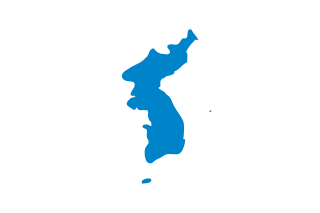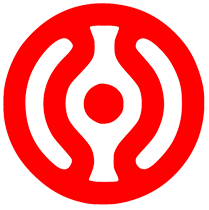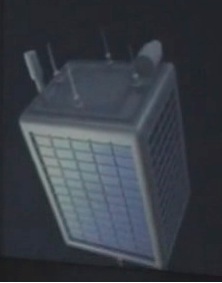Related Research Articles

North Korea, officially the Democratic People's Republic of Korea (DPRK), is a country in East Asia, constituting the northern part of the Korean Peninsula. It borders China and Russia to the north, at the Yalu (Amnok) and Tumen rivers; it borders South Korea to the south at the Korean Demilitarized Zone. Its western border is formed by Korea Bay and the Yellow Sea, while its eastern border is defined by the Sea of Japan. North Korea, like its southern counterpart, claims to be the legitimate government of the entire peninsula and adjacent islands. Pyongyang is the country's capital and largest city.

Korean reunification refers to the potential reunification of North Korea and South Korea into a single Korean sovereign state. The process towards reunification was started by the June 15th North–South Joint Declaration in June 2000, and was reaffirmed by the Panmunjom Declaration for Peace, Prosperity and Unification of the Korean Peninsula in April 2018, and the joint statement of the United States President Donald Trump and North Korean Supreme Leader Kim Jong-un at the Singapore Summit in June 2018. In the Panmunjom Declaration, the two countries agreed to work towards a peaceful reunification of Korea in the future.

The Korean Central News Agency (KCNA) is the state news agency of North Korea. The agency portrays the views of the North Korean government for both domestic and foreign consumption. It was established on December 5, 1946 and now features internet coverage.

The Chondoist Chongu Party is a popular front party in North Korea. The party was founded on 8 February 1946 by a group of followers of the Ch'ŏndogyo. The founding-leader of the party was Kim Tarhyon.

Rodong Sinmun is a North Korean newspaper that serves as the official newspaper of the Central Committee of the Workers' Party of Korea. It was first published on November 1, 1945, as Chǒngro, serving as a communication channel for the North Korea Bureau of the Communist Party of Korea. It was renamed in September 1946 to its current name upon the steady development of the Workers' Party of Korea. Quoted frequently by the Korean Central News Agency (KCNA) and international media, it is regarded as a source of official North Korean viewpoints on many issues.
North Korea's human rights record is often considered to be the worst in the world and has been globally condemned, with the United Nations, the European Union and groups such as Human Rights Watch all critical of the country's record. Most international human rights organizations consider North Korea to have no contemporary parallel with respect to violations of liberty.
Hanchongnyon, also known as the South Korean Federation of University Students Councils, is a pro-North Korea leftist student organization in South Korea. Hanchongnyon supports a North Korean-led unification of Korea and instigates Korean college students to overturn the Korean state system.
The mass media in North Korea is amongst the most strictly controlled in the world. The constitution nominally provides for freedom of speech and the press. However, the government prohibits the exercise of these rights in coming in and out of the country but seeks to mold information at its source. A typical example of this was the death of Kim Jong-il, news of which was not divulged until two days after it occurred. Kim Jong-un, who replaced his father as the leader, has given every indication he will largely follow in his father's footsteps. However, new technologies are being made more freely available in the country. State-run media outlets are setting up websites, while mobile phone ownership in the country has escalated rapidly. “There is no country which monopolizes and controls successfully the internet and information as North Korea does,” said Kang Shin-sam, an expert on North Korean technology and co-head of the International Solidarity for Freedom of Information in North Korea, a nonprofit based in South Korea. North Korea now has about four million mobile-phone subscribers—roughly one-sixth of the population and four times the number in 2012, according to an estimate by Kim Yon-ho, a senior researcher at Johns Hopkins University’s School of Advanced International Studies.
So Man-sul was the chairman of the Central Standing Committee of the pro-Pyongyang General Association of Korean Residents in Japan, Chongryon, as well as a member of Supreme People's Assembly of the Democratic People's Republic of Korea.
Censorship in North Korea ranks among some of the most extreme in the world, with the government able to take strict control over communications. North Korea is ranked at the bottom of Reporters Without Borders' annual Press Freedom Index, occupying the last place in 2017.

Kim Il was a North Korean politician who was Premier from 28 December 1972 to 19 April 1976.

Kwangmyŏngsŏng-2 was a satellite launched by North Korea on April 5, 2009.

Daily NK is an online newspaper focusing on issues relating to North Korea. The site is based in South Korea, where it reports stories obtained from inside North Korea via a network of informants.
The National Reconciliation Council (민족화해협의회) is a North Korean organization whose purpose is to facilitate visits from South Korea to North Korea. Founded on 8 June 1998, its chairman is Kim Yong-dae. The first visit organized by the body was a 2001 visit to Mount Kumgang commemorating the 2000 inter-Korean summit. Most cultural, political, and religious visits from South Korea are through the National Reconciliation Council. The organization is occasionally cited in official news releases from the Korean Central News Agency.

Minju Choson is a state-run North Korean government newspaper. It is published in Pyongyang. It was started in 1945. It is the principal newspaper of the Cabinet of North Korea and the Presidium of the Supreme People's Assembly.

The National Reunification Prize is an award of North Korea, bestowed by the Presidium of the Supreme People's Assembly upon people who have contributed to the reunification of Korea. The award was instituted in 1990.

Kang Nung-su was a North Korean literary critic and politician. He was a vice premier and member of the politburo of the Central Committee of the Workers' Party of Korea. He was a delegate to the 12th and 13th sessions of the Supreme People’s Assembly.

Ri In-mo was an unconverted long-term prisoner who spent 40 years in prison and under restriction of freedom in South Korea.

Kim Won-gyun was a North Korean composer and politician. He is considered one of the most prominent, if not the most celebrated, composer of North Korea. He composed "Aegukka" — the national anthem of the country — and "Song of General Kim Il-sung", in addition to revolutionary operas.
Kim Pyong-sik was a North Korean politician who served as Vice President of North Korea and chairman of the Korean Social Democratic Party.
References
- KCNA News, 14 December 1997, accessed 3 March 2006
- KCNA News, 17 August 1998, accessed 3 March 2006